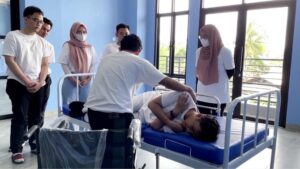
Understanding the Basics of Elder Care Training Programs
Understanding the Basics of Elder Care Training Programs As the global population ages, the demand for skilled caregivers to support elderly individuals continues to grow.
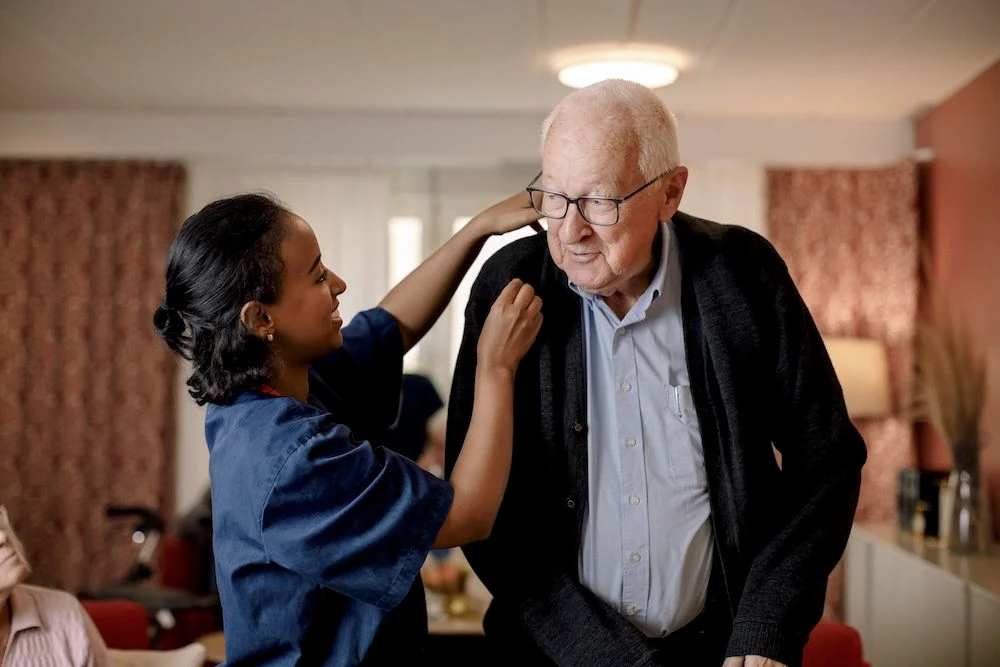
In the field of caregiving, technical skills are undoubtedly essential. However, beyond practical tasks and medical knowledge, soft skills are the cornerstone of quality caregiving. Soft skills such as empathy, patience, and communication are often overlooked but play a crucial role in caregiver training and, ultimately, patient satisfaction. Let’s explore why these skills matter and how they enhance the overall quality of caregiving.

1. Empathy: The Heart of Caregiving
Empathy, the ability to understand and share another person’s feelings, is a core skill in caregiver training. Caregivers work with individuals who are often dealing with pain, discomfort, or a loss of independence. A caregiver with strong empathy can place themselves in the patient’s shoes, recognizing and validating their emotions, fears, and concerns.
In practice, an empathetic caregiver might:
Listen actively to patients, allowing them to express their concerns.
Offer comfort in difficult times, whether it’s with a reassuring hand or calming words.
Recognize non-verbal cues, like changes in mood or body language, that indicate a need for support.
Empathy doesn’t just make patients feel heard; it fosters trust. Patients are more likely to be open and responsive to caregivers who genuinely understand their needs, which in turn improves the effectiveness of care.
2. Patience: Meeting the Pace of Each Individual
Patience is another indispensable soft skill in caregiving, especially when dealing with elderly patients, individuals with disabilities, or those suffering from dementia. Each person has a unique pace, and the ability to remain calm and unhurried makes a significant difference in how care is perceived and received.
For example, a caregiver might:
Allow extra time for patients to complete tasks or make decisions without rushing them.
Refrain from showing frustration, even if the patient is slow to respond or understand instructions.
Take a gentle, repetitive approach when assisting patients with memory issues.
A caregiver who is patient creates a relaxed environment where patients feel comfortable. This approach helps reduce stress for both the patient and the caregiver, leading to better overall care.
3. Communication: The Foundation of Understanding
Clear, compassionate communication is at the heart of effective caregiving. It’s not just about conveying instructions or information; it’s about building a relationship based on respect and understanding. In caregiver training, communication skills are often emphasized because caregivers must interact not only with patients but also with families, medical professionals, and sometimes a care team.
Key aspects of strong communication skills in caregiving include:
Active Listening: Paying full attention to what patients say without interrupting. This helps caregivers catch subtle details about the patient’s well-being.
Clarity and Simplicity: Communicating in a way that patients can easily understand, especially important for those with cognitive impairments.
Positive Language: Using encouraging words and phrases to uplift patients, making them feel more at ease.
Good communication also includes documentation—caregivers must keep accurate records of patients’ needs, progress, and concerns. Clear records ensure seamless care coordination among the caregiving team and any other healthcare providers involved.
How Soft Skills Enhance Caregiving Quality
When caregivers are equipped with soft skills, they’re better able to adapt to each patient’s unique needs, thereby enhancing the quality of care. Here’s how:
a. Building Trust and Rapport
Patients who feel genuinely cared for are more likely to trust their caregivers. Soft skills allow caregivers to establish a strong rapport, making patients feel safe and respected. This trust is crucial, especially in sensitive situations like assisting with personal hygiene or helping with mobility, where vulnerability is high.
b. Reducing Patient Anxiety
Empathy, patience, and communication help alleviate anxiety for patients, particularly those with chronic conditions or limited mobility. Knowing that their caregiver will listen to them, understand their needs, and respond calmly reduces fear and discomfort.
c. Improving Health Outcomes
Studies have shown that patients who have strong emotional support from caregivers often experience better health outcomes. For example, empathetic communication has been linked to lower levels of stress and improved recovery times. Moreover, clear communication between caregivers and patients can ensure that patients adhere to medication schedules and other aspects of their care plans.
d. Enhancing Caregiver Satisfaction
Soft skills don’t just benefit patients; they also contribute to caregiver satisfaction. When caregivers connect on a personal level with patients, they often find their work more meaningful. This sense of fulfillment can reduce burnout and improve job retention, which ultimately benefits the quality of care provided by any organization.
Incorporating Soft Skills into Caregiver Training
Many caregiver training programs are recognizing the importance of soft skills alongside technical abilities. Training modules on empathy, communication, and patience can be woven into the curriculum through:
Role-Playing Exercises: These allow trainees to practice difficult conversations and emotional scenarios, preparing them to respond effectively in real-life situations.
Real-Life Case Studies: Trainees examine real-world examples of care scenarios to understand how soft skills influence patient outcomes.
Mentorship Programs: Pairing trainees with experienced caregivers who demonstrate strong soft skills can offer valuable hands-on learning and guidance.
Conclusion: The Human Element in Caregiving
Caregiving is about more than just administering medication or assisting with daily activities; it’s about providing holistic, compassionate care. Soft skills like empathy, patience, and communication are vital tools that help caregivers build trust, alleviate anxiety, and improve both patient and caregiver satisfaction. As the demand for quality caregiving continues to grow, training programs that emphasize these essential skills are setting a new standard for compassionate, effective care.
For caregivers, honing these soft skills is an investment in not only professional growth but also in the well-being of those they care for, ensuring that each patient’s journey is filled with dignity, respect, and genuine human connection.

Understanding the Basics of Elder Care Training Programs As the global population ages, the demand for skilled caregivers to support elderly individuals continues to grow.
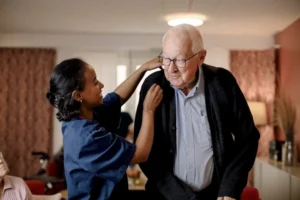
The Role of Soft Skills in Caregiver Training and Patient Care In the field of caregiving, technical skills are undoubtedly essential. However, beyond practical tasks

Everything You Need to Know About Taking a Caregiver Course in Malaysia With Malaysia’s aging population and the growing demand for trained caregivers, taking a
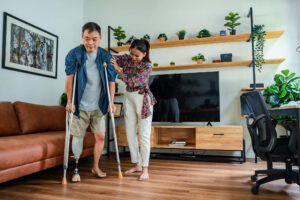
The Demand for Caregivers in Malaysia and Why Now Is a Great Time to Start a Career Today As Malaysia’s population ages and the need
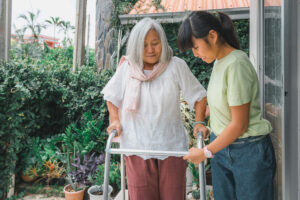
With Malaysia’s growing elderly population, the need for skilled and compassionate caregivers has never been greater. Becoming a certified caregiver not only opens doors to rewarding career opportunities but also equips you to make a real difference in people’s lives. This step-by-step guide walks you through the process—from choosing the right training program and meeting eligibility requirements to obtaining certification and staying updated in your field. Ready to embark on a fulfilling journey in caregiving? Here’s everything you need to get started.

Caregiving is a rewarding and impactful profession, and Genesis Training Academy is here to help you succeed. With a comprehensive curriculum, hands-on training, and support from experienced instructors, we prepare aspiring caregivers to excel in their careers. From mastering essential caregiving skills to fostering compassion and confidence, discover how Genesis Training Academy equips you for a fulfilling career in caregiving.
The Genesis Training Academy course modules are currently being offered free of charge. This is a limited time offer and will be awarded on a first come first serve basis. Interested in becoming a professional caregiver? Follow these simple steps:
